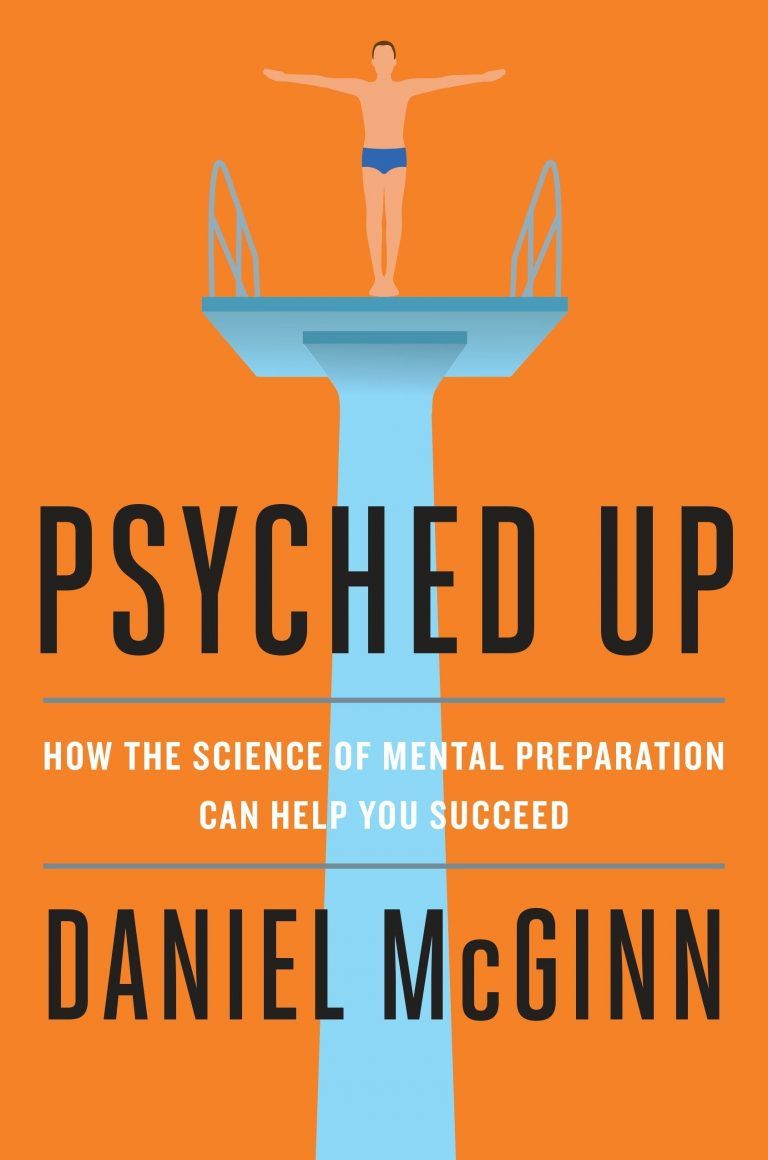Psyched Up – Daniel McGinn

In helping humans perform, psychology is the software, but biology is the hardware.
To really make the most of the final moments before you perform, reducing anxiety isn’t enough. You also want to build positive emotions, such as confidence, self-efficacy, and power
Rituals can improve your performance
Regardless of what you choose to do before your performance, however, there is one thing that should always happen: consistency.
Studies back up the effectiveness of athletes’ routines before a game, for example. Athletes are aware of this and do what they can to prepare.
Leverage biology
The rush of fear and anxiety we feel before a big presentation or interview is caused by adrenaline being dumped into our system.
Originally quite helpful when confronted by a dangerous animal, in modern days we are stuck with the racing heart, sweaty palms, and frozen brain of the “fight or flight” response. How we speak to ourselves in the moment can make a difference.
Deal with performance anxiety by reappraising it
One study compared the performances of people who said, “I’m so excited” vs. those who said “I’m so nervous” and those who said nothing before going on stage. The people who said they were excited, and thus reappraised anxiety to excitement, performed the best.
Why does this help more than not saying anything at all? Because transitioning from anxiety to calm is very difficult, as the two emotions are very different. Transitioning from worried to excited, however, does not take much effort at all.
Pre-performance routines
As a leader, you can help your teams achieve better results by introducing them to pre-performance routines.
Research shows that getting together to perform seemingly silly ritual actions such as handclaps, foot stomps, and a huddle-style “Let’s go!” before embarking on a task can improve a team’s performance.
Is there a ritual you can invent to accompany your customers’ experience? Think of Walmart greeters or the actions a good salesperson takes when they prepare your dressing room with the clothes you’ve selected. These enhance the experience, build loyalty, and boost sales.
Centering yourself
This is another essential technique for calming performance anxiety. You can center yourself by breathing deeply, concentrating on your breath, and releasing all muscle tension.
Imagine all the energy in your body moving into one point—the belly button. Once it’s all there, visualize releasing it. Using this technique before an important event will help you regain focus and kick anxiety to the curb.
Competition will improve your performance
When it comes to performance, competition and rivalries are a great thing. Studies show that competition dramatically enhances performance.
The feeling we get when we are racing against others and someone is right on our tail drives us to do better, to prove ourselves. Cyclists do better when competing rather than beating the clock, and the same goes for other sports as well. Furthermore, fighting against a rival or someone you know rather than a stranger boosts your abilities even more.
The motivating effects of competition help not only in sports but in the business world as well.
Priming
Try one of these: have your team, colleagues, or worker bees journal about their past successes before attempting today’s challenge.
Frame reminders of past work on the walls. Take and share a photo of the team flush from a past success before they climb the next (metaphoric) mountain.
In experiment after experiment, psychologists documented enhanced performance when workers were exposed to reminders of positive performance like these.
Tell your team what they are being asked to do
Before an important event:
- Remind them why it’s important.
- Tell them why you know they can do it.
- Have them pause and think about what they have accomplished together.
- Exhort them to go and do it.
- Just don’t tell them to “calm down.” That’s not realistic, and that emotion is too different from their agitation.
- And while it seems helpful to describe what might go wrong and why the world will keep spinning if it does, now is not the time to introduce negative thoughts to their consciousness.

